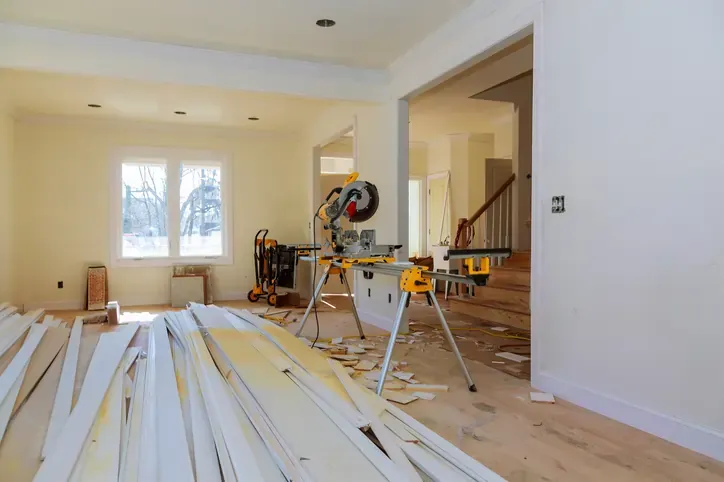
Your home is likely your largest financial asset, and over the years, you've built up valuable equity through mortgage payments and property appreciation. This equity represents real money that you can access to transform your living space through strategic home improvements and remodeling projects.
Understanding Home Equity and Its Power
Home equity is the difference between your home's current market value and what you owe on your mortgage. For example, if your home is worth $400,000 and you owe $200,000 on your mortgage, you have $200,000 in equity. This equity grows naturally as you make mortgage payments and as your property value increases over time.
Many homeowners don't realize they're sitting on a goldmine of renovation potential. Rather than struggling to save cash for years or taking on high-interest credit card debt, you can tap into your home's equity to fund the improvements you've been dreaming about.
Popular Ways to Access Your Home Equity
Several financial products allow you to convert your home equity into cash for remodeling projects. A home equity loan provides a lump sum with fixed monthly payments, making it ideal for projects with known costs like kitchen renovations or bathroom upgrades. These loans typically offer lower interest rates than personal loans or credit cards because your home secures the debt.
A home equity line of credit, or HELOC, works more like a credit card secured by your home. You can draw funds as needed during a set period, which makes it perfect for projects where costs might vary or for multiple smaller improvements over time. You only pay interest on the amount you actually use.
Cash-out refinancing involves replacing your current mortgage with a larger one and taking the difference in cash. This option makes sense when current mortgage rates are favorable or when you want to consolidate debt along with funding your remodel.
For homeowners 62 and older, a reverse mortgage can provide access to equity without monthly payments. You can explore your options and calculate potential proceeds using tools like those found at https://reverse.mortgage/calculator to see if this approach fits your situation.
Remodeling Projects That Add Real Value
Not all home improvements are created equal when it comes to return on investment. Kitchen remodels consistently rank among the most valuable improvements, with minor kitchen updates typically recouping 70-80% of their cost when you sell. A fresh, modern kitchen appeals to buyers and makes daily life more enjoyable for you.
Bathroom renovations also deliver strong returns, especially when you update fixtures, improve lighting, and enhance storage. Converting a half-bath to a full bathroom or adding a bathroom where none existed can significantly boost your home's value and marketability.
Adding livable space through basement finishing, attic conversions, or room additions creates immediate value by increasing your home's square footage. These projects often return more than their initial cost while providing your family with much-needed space.
Energy-efficient improvements like new windows, insulation upgrades, or HVAC system replacements might not be glamorous, but they reduce utility bills and appeal to environmentally conscious buyers. Many of these improvements also qualify for tax credits, further improving their financial benefits.
Smart Strategies for Equity-Funded Remodeling
Before tapping your equity, get a realistic estimate of your home's current value through a professional appraisal or comparative market analysis. This helps you understand how much equity you have available and ensures you don't over-improve for your neighborhood.
Create a detailed budget that includes a 10-15% contingency fund for unexpected expenses. Remodeling projects often reveal surprises like outdated electrical work or plumbing issues that need addressing. Having extra funds available prevents you from getting stuck mid-project.
Consider the timing of your improvements carefully. If you plan to sell within the next few years, focus on updates that appeal to the broadest range of buyers. If you're staying long-term, prioritize improvements that enhance your daily life and comfort.
Work with licensed, insured contractors who provide detailed written estimates. Get multiple quotes for major projects and check references thoroughly. Quality workmanship protects your investment and ensures your improvements actually add value rather than create problems.
Managing the Financial Aspects
Compare interest rates and terms from multiple lenders before choosing how to access your equity. Credit unions and local banks sometimes offer better rates than large national lenders, so shop around. Consider the total cost of borrowing, including fees, closing costs, and the length of time you'll be paying.
Factor the new monthly payments into your budget before committing to equity-based financing. Make sure you can comfortably handle the additional debt service along with your other financial obligations. Remember that your home secures these loans, so staying current on payments is crucial.
Keep detailed records of all improvement costs and receipts. Many home improvements qualify for tax deductions, and you'll need documentation if you sell your home to potentially reduce capital gains taxes on any profit.
Making Your Remodeling Dreams Reality
Your home's equity represents years of building wealth through homeownership. Using this equity strategically for well-planned improvements can enhance your quality of life while potentially increasing your property value even further. Whether you're updating an outdated kitchen, adding a luxurious master suite, or creating the home office you've always wanted, your equity can make these projects financially feasible without depleting your savings or taking on high-interest debt.
The key is approaching equity-funded remodeling thoughtfully, with clear goals and realistic budgets. When done right, these improvements pay dividends in both daily enjoyment and long-term financial benefit, making your house truly feel like the home you've always envisioned.


